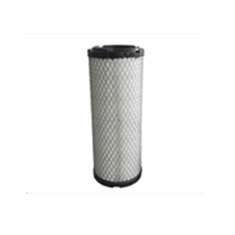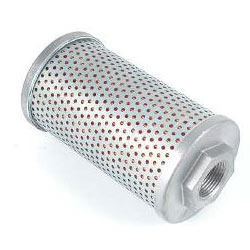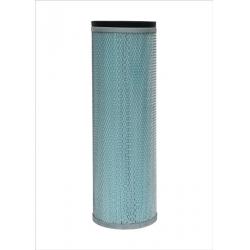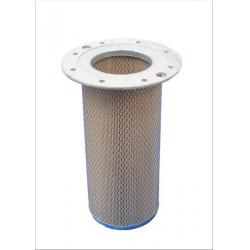
1-800-210-8170
MON-SAT 6AM-5PM PST,9AM-8PM EST24/7 ONLINE






We distribute an extensive selection of FORKLIFT OIL, AIR & HYDRAULIC, FILTERS parts for all makes and models. We ship directly from various warehouses located all over North America to provide the fastest shipping at the most affordable prices.
Forklift filters are used in heavy-duty forklift trucks, which are regularly exposed to extreme weather conditions and environmental contaminants. Therefore, the machines and components are always at risk of being negatively affected under the extreme weather conditions and barrage of contaminants in the form of dust and dirt. Forklift trucks, being heavy-duty vehicles, responsible for carriage of hefty loads, are prone to being affected by pollution in its environment. Being a heavily used equipment in warehouses and stockyards, the forklifts and its components are prone to dirt and contaminants. If the operator is not careful, then the dirt and contaminants can get into the air, fuel, hydraulic fluid and even oil, which will ultimately undermine the mechanics of the forklift engine.
Screen Dirt and Other Contaminants Using Forklift Filters
Forklift filters are mainly composed of fibrous materials, which removes solid particles, dust, pollen, mold and bacteria from air and fluids. Forklift engine uses atmospheric air to be mixed with the fuel for its ignition and subsequent running of the engine. The atmospheric air is heavily polluted with dust particles, smoke, gaseous waste and many other contaminants. If such polluted air directly enters the engine combustion system, it will adversely affect the engine’s efficiency, put the engine to a halt or malfunction. The abrasive particles coming in with foul unfiltered air brings along dust, dirt and tiny metal particles, which tends to wear away engine rings, pistons, bearings and cylinders. Therefore, the atmospheric air and its abrasive particles should be filtered off before consumption by the engine. It is pertinent to remember that modern engines operate on a precise mix of air and fuel ratio. Maintenance of this ration is very important for the efficiency and health of the engine, as the engine parts are designed, keeping this ratio as one of the important parameters. In cases where the engine is not getting the required supply of air for the air-fuel mixture, the engine will be fed with a fuel rich mixture, detrimental to its health and efficiency.
The forklift air filters prevent abrasive matter from entering the engine’s components where it could cause internal damage or accelerate its wear and tear. These air filters are normally made of fibrous materials, which help removal of solid dust particles, molds, pollens or other external materials. Modern forklift trucks use pleated-paper filter element in the form of a panel. The filter is located inside a compartment and is connected to throttle body through ducts. Forklift trucks using carburetor typically use cylindrical shaped air filters, which are positioned above the carburetor, or throttle body. They are usually contained in a metal or hard plastic body, secured with metal or plastic lids.
Although we do have modern and better technology air filters available to us today, any air filter, no matter how sophisticated in performance and rugged in terms of longevity, can only a take certain share of abuse from the foul air. At a certain time, the air filter needs to be replaced. Replacement time and frequency, however, will depend upon the environment you are using your forklift truck in. In case the forklift truck is being used at a construction site, the air in the atmosphere is more polluted than estimations, warranting frequent changes of air filter. On the other hand, if the forklift truck is being used in a clean small warehouse, the air filter will live longer than expected. A faction of experts suggests a change of air filter after every 3000 miles, along with change of oil filter, the others emphasize more on visual inspection of air filter for deciding about its cleaning or replacement. Both schools of thought are appropriate depending upon the working environment. However, the best bet remains consulting the owner’s manual for precise time or mileage.
Oil filtersin a forklift trucks remove contaminants from transmission oil, engine oil and hydraulic oil. These are used in many types of hydraulic machines and are most commonly used in internal combustion engines. Hydraulic systems like automatic transmission and power steering in the forklift trucks use oil filters for sustained performance and longevity. Early models of forklift engines incorporated mechanical design oil filters made of cartridges or filter items, which were replaceable. These were kept in permanent housings mounted on the engine directly with supply and was connected with engine through the return pipes.
During the 1950s, a disposable model of oil filters was introduced which were attached to their mounts with screws. After much usage, the housing along with the filter cartridge, was to be unhooked from the mounting and disposed off. Due to ease of replacement, this disposable model, called spin-on oil filter, gained wide acceptance and soon was the most procured item of its kind. In 1990s, however, forklift trucks were once again being equipped with replaceable cartridge models since they were more cost effective and generated less waste upon filter replacement or disposal. In most of the modern day forklift trucks, replaceable cartridge filters are being used which vary in their size, volume, capacity and material depending upon the type and size of forklift truck.
Contaminants in the hydraulic system can decrease the life expectancy of the hydraulic cylinders as well as the hydraulic lift valves. The hydraulic filter helps filter out all of the contaminants prolonging the use of the hydraulic parts. Transmission fluid may get debris and contaminants that would result in reducing the power, difficulty in speed shifting and in some case, engine start problems. Ensure to include replacement of transmission filter whenever performing a routine maintenance to continuously run the forklift at its optimum level.
When the forklift filter is deemed too old and unusable, it can easily be replaced. Solid Lift Parts Inc. provides many varieties of filters with numerous sizes and types of materials. We provide the most suitable and longer lasting filters for your specific forklifts and its components. For a free quote, contact your parts specialist today!
Forklift Filter Photos



*Manuals and parts books are not owned by Solid Lift Parts inc. and are presented for reference purpose only.